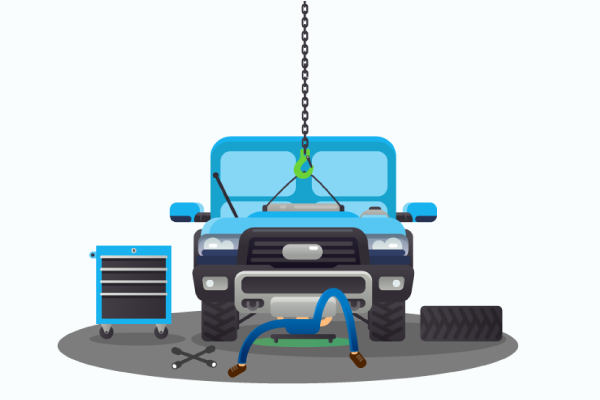Six Common Myths and Misconceptions about Workers' Compensation: Debunked
Hey there, folks! Let’s talk about everyone’s favorite topic: workers’ compensation!
Okay, maybe it’s not the most exciting thing in the world, but it’s still pretty darn important. Unfortunately, there are a lot of myths and misconceptions out there about workers’ comp that can leave you feeling confused and frustrated.
But fear not, my dear readers, for we are here to debunk those pesky myths and set the record straight. So sit back, grab a cup of coffee (or something stronger, if you prefer), and let’s dive into the world of workers’ compensation myths and misconceptions.
Why You Should Get Workers Compensation
First of all, workers’ compensation provides you with financial support if you get injured on the job. It can cover things like medical expenses, lost wages, and even vocational rehabilitation if you’re unable to return to your previous job.
It’s important to acknowledge that dealing with a work-related injury can be a stressful and difficult experience, both physically and emotionally. In addition to the physical pain and recovery, financial concerns can add an extra layer of stress to an already challenging situation.
That’s why workers’ compensation is so crucial. It provides a safety net for workers who find themselves in such a situation, ensuring that they are able to cover their medical expenses and living expenses while they are out of work.
If you’ve been injured on the job, it’s understandable to feel overwhelmed and unsure of where to turn. That’s why we encourage you to consider workers’ compensation as a way to alleviate some of the financial burden and stress that can come with a work-related injury. By providing support for medical bills and lost wages, workers’ comp can help you focus on your recovery without worrying about how you’re going to make ends meet.
Ultimately, the decision to pursue workers’ compensation is a personal one that should be made based on your individual circumstances. But if you’re struggling to cover your expenses after a work-related injury, we strongly encourage you to explore your options and consider applying for workers’ compensation benefits. It could make all the difference in your recovery and overall well-being.
But that’s not all, folks! Workers’ compensation also provides peace of mind. You know that if something goes wrong on the job, you’ll be taken care of. You can focus on your recovery without worrying about how you’re going to pay the bills. And let’s face it, peace of mind is priceless these days.
Plus, getting workers’ compensation benefits can also prevent you from falling into debt. Without workers’ comp, you may have to rely on credit cards or loans to pay for your medical bills and living expenses while you’re out of work. And let’s be real, debt is the ultimate buzzkill.
So, long story short, getting workers’ compensation is pretty darn important. Don’t let those pesky myths and misconceptions scare you away from getting the benefits you deserve. Trust me, your bank account and mental health will thank you.
Six Myths and Misconceptions
Ah, workers’ compensation, the mystical beast that has spawned countless myths and misconceptions. But fear not, dear reader, for I am here to debunk six of the most common ones in a witty and entertaining manner!
Myth #1: You can only receive workers’ compensation if the injury occurred at work.
False! Workers’ compensation covers injuries that occur during work-related activities, whether they happen at the office, on a job site, or even while traveling for work. So, if you slip on a banana peel while rushing to a business meeting, you’re still covered.
Myth #2: You have to prove your employer was at fault to receive workers’ compensation.
Wrong again, my friends! Workers’ compensation is a “no-fault” system, meaning that you don’t have to prove your employer was at fault for your injury. As long as the injury happened during work-related activities, you’re entitled to benefits.
Myth #3: Workers’ compensation is only for physical injuries.
Ha! If only life were that simple. Workers’ compensation also covers mental health conditions that result from work-related activities, such as anxiety, depression, and PTSD. So, if your boss is driving you insane, you may be eligible for compensation.
Myth #4: You can’t sue your employer if you receive workers’ compensation.
Ah, the classic catch-22. While you can’t sue your employer for your injury if you receive workers’ compensation, there are some exceptions. If your injury was caused by intentional conduct or gross negligence on the part of your employer, you may be able to file a lawsuit.
Myth #5: Employees have to pay taxes on workers’ compensation benefits.
Debunked: Workers’ compensation benefits are generally not subject to federal income tax, and in many cases, they are also exempt from state income tax. However, some states may tax a portion of the benefits if they exceed a certain amount.
Myth #6: Workers’ compensation only covers medical expenses.
Nay, my dear reader, workers’ compensation covers a wide range of benefits, including lost wages, disability benefits, and even vocational rehabilitation. So, if you’re unable to work due to a work-related injury, workers’ compensation may be able to provide you with financial support while you recover.
And there you have it, folks! Six common myths and misconceptions about workers’ compensation, debunked in a witty and entertaining manner.
Remember, knowledge is power, so don’t let these myths prevent you from getting the benefits you deserve.




